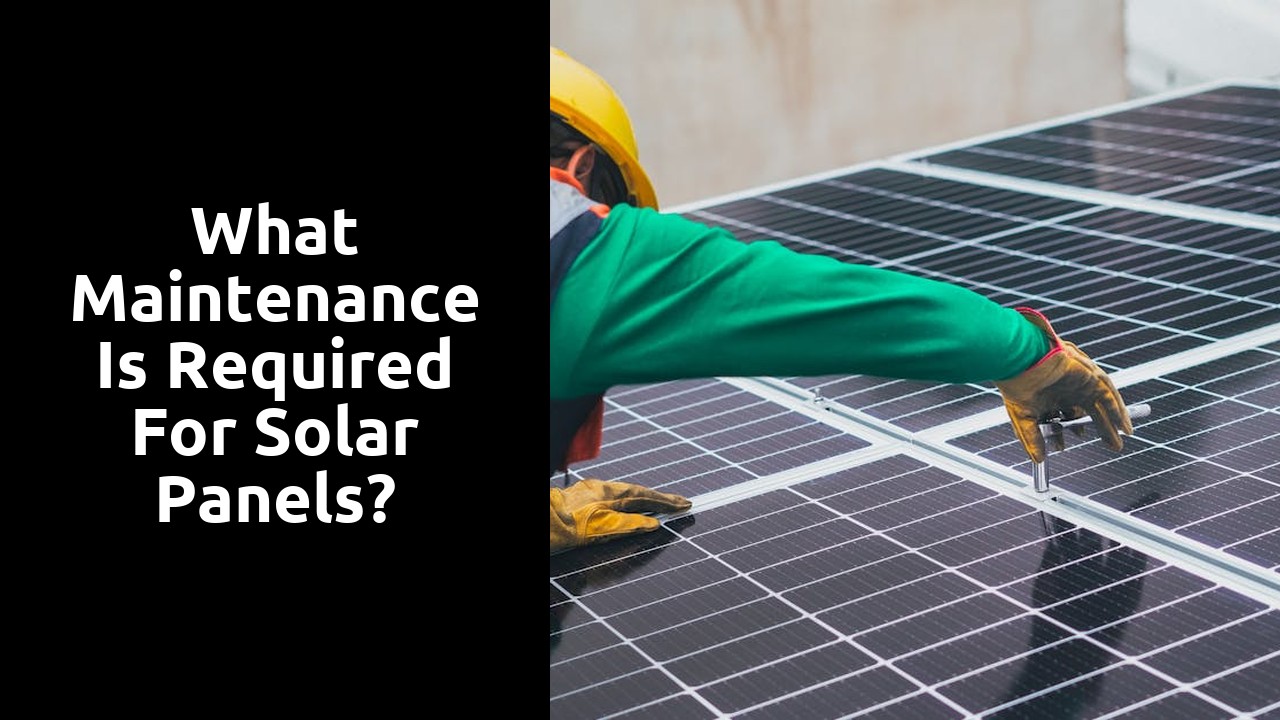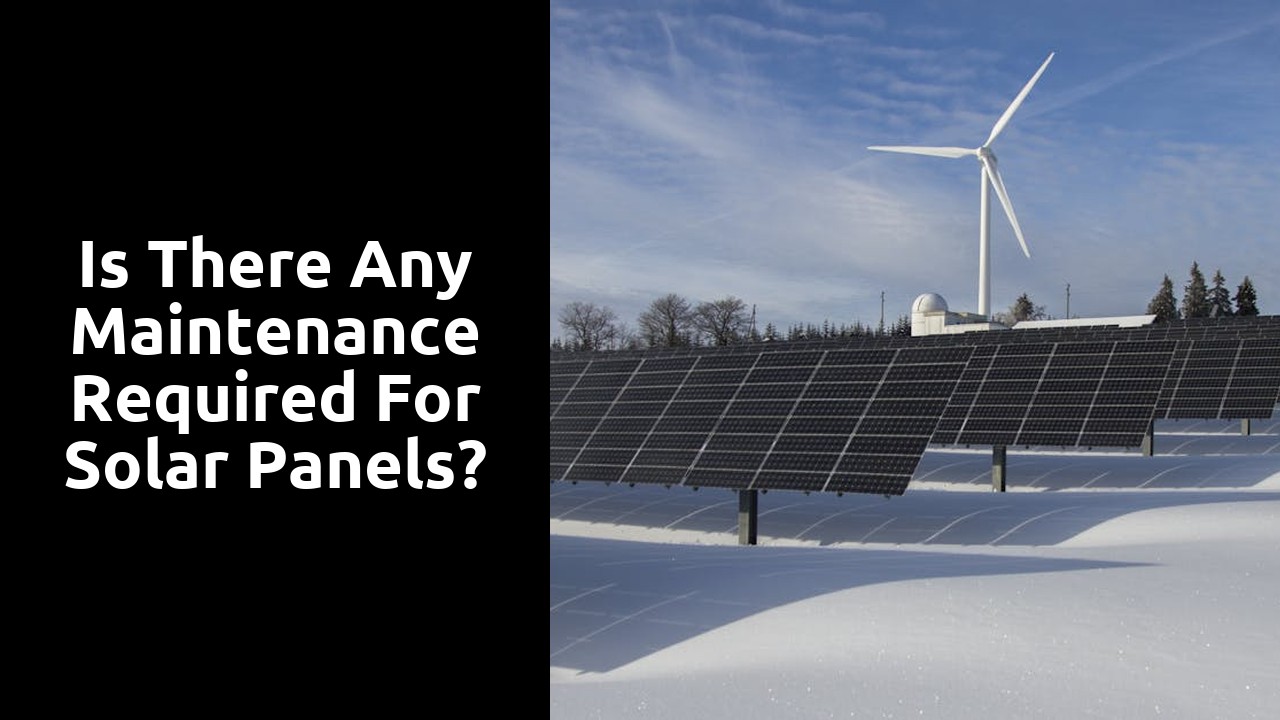
Table Of Contents
Pest Control
Pest control is a crucial aspect of solar panel maintenance to ensure the optimal functioning and longevity of your solar energy system. In Australia, common pests like birds, possums, and insects can cause damage to solar panels by nesting underneath them or chewing on the wiring. Regular inspections and preventive measures can help avoid these issues. Inspecting your solar panels for signs of pest activity, such as droppings or nesting materials, is a good practice to identify and address any potential pest problems early on.
Preventing pests from nesting under or on top of your solar panels is essential to maintain their efficiency. Installing barriers like mesh or wire around the perimeter of the solar panel system can deter pests from accessing the space underneath. Keeping surrounding trees and vegetation trimmed away from the panels can also help reduce the likelihood of pests using them as a nesting or roosting site. By incorporating these pest control practices into your regular solar panel maintenance routine, you can protect your investment and maximise the energy output of your solar energy system.
Preventing Nesting
To prevent nesting around solar panels, implementing suitable measures is crucial to ensure their effectiveness and durability. One effective method is to install deterrents such as physical barriers and spikes around the panels. These barriers act as a deterrent to birds and other pests, reducing the likelihood of nesting in the proximity of the solar panels. Regular inspections to check for signs of nesting activity and immediate removal of any nesting material is essential to maintain the efficiency and longevity of the solar panels. Additionally, keeping the surrounding area clean and free from debris can further discourage nesting and potential damage to the panels, emphasizing the importance of proactive measures in Solar Panel Maintenance.
Shading Management
Shading can significantly impact the efficiency of solar panels. To maintain optimal performance, regular monitoring of potential sources of shading is essential. Trees near solar panels are common culprits that can cast shadows and reduce the amount of sunlight reaching the panels. Pruning trees and vegetation surrounding the panels is a crucial aspect of shading management in Solar Panel Maintenance.
Additionally, monitoring the positioning of nearby structures or new developments that may cast shadows on the panels throughout the day is important. Regularly assessing the movement of shadows and adjusting the placement of panels if necessary can help maximise energy production. By proactively managing shading issues, you can ensure that your solar panels operate efficiently and continue to generate clean energy for your household or business.
Trimming Trees
Trimming trees plays a crucial role in ensuring the optimal performance of solar panels. Overgrown branches can cast shadows on the panels, reducing their efficiency in converting sunlight into electricity. Regular tree trimming around the solar panel installation area is essential to prevent any obstruction to the sunlight reaching the panels. By keeping the trees well-manicured and at a safe distance from the panels, you can avoid potential issues with shading that may arise over time. Solar Panel Maintenance involves periodic tree pruning to maintain unobstructed access to sunlight, ultimately maximizing the energy output of the solar system.
Aside from shading concerns, branches hanging over the solar panels can pose a risk of physical damage during high winds or storms. Trimming trees around the installation site helps minimise the chances of branches falling onto the solar panels, protecting them from potential harm. Proper tree maintenance not only contributes to the efficient operation of the solar panels but also ensures their longevity and durability. Solar Panel Maintenance should encompass regular inspection and pruning of nearby trees to safeguard the system and promote consistent energy generation.
Weatherproofing
Weatherproofing is a crucial aspect of solar panel maintenance. Ensuring that the panels are sealed and protected from harsh weather conditions is essential for their longevity and efficiency. In Australia, where intense sunlight and sudden weather changes are common, weatherproofing measures are particularly important to safeguard the solar panels from damage. Sealants can be used around the edges of the panels to prevent water ingress, reducing the risk of corrosion and electrical issues. Regularly inspecting the seals and replacing them if necessary can help maintain the weatherproofing integrity of the solar panels.
Another key factor in weatherproofing for solar panel maintenance is to protect the electrical components from moisture and debris. Enclosures or covers can be installed to shield the sensitive parts of the panels from rain and dust, reducing the risk of short circuits or malfunctions. Regularly cleaning the panels and checking for any signs of wear or damage to the weatherproofing materials can help ensure the longevity and performance of the solar panels. By incorporating these weatherproofing practices into the maintenance routine, solar panel owners can maximise their energy production and prolong the lifespan of their investment.
Secure Mounting
Secure mounting is paramount for proper solar panel maintenance. Ensuring that panels are securely fixed in place not only helps to maximise sunlight exposure but also prevents damage and potential safety hazards. Loose panels can shift or fall in extreme weather conditions, leading to reduced efficiency or costly repairs. It is essential to regularly inspect the mounting system for any signs of wear and tear, and promptly address any issues to maintain the longevity of the solar panels.
Properly securing panels also helps to maintain the structural integrity of the overall solar system. By securely fastening the panels to the mounting structure, the risk of damage from high winds or storms is significantly reduced. Regularly checking the bolts, brackets, and support structure is crucial to ensure that everything remains tightly in place. Any loose connections or damaged components should be fixed promptly to avoid disruptions to the solar panel system's performance and longevity. Solar Panel Maintenance is essential for ensuring the continued efficiency and effectiveness of a solar energy system.
FAQS
How often do solar panels need to be cleaned?
Solar panels should be cleaned at least once or twice a year to ensure optimal performance. You may need to clean them more frequently if you live in a dusty area or if there has been heavy rainfall.
Do solar panels require regular pest control measures?
Yes, it is important to implement pest control measures to prevent birds and other animals from nesting under or around the solar panels. This can be achieved through the installation of barriers or deterrents.
Can shading affect the efficiency of solar panels?
Yes, shading can significantly reduce the efficiency of solar panels. It is important to regularly trim trees and bushes that may cast shadows on the panels to ensure maximum sunlight exposure.
How can I weatherproof my solar panels?
To weatherproof your solar panels, make sure that all seals and connections are secure and intact. Regularly inspect the panels for any signs of wear and tear, and replace any damaged components promptly.
Is it important to secure the mounting of solar panels?
Yes, securing the mounting of solar panels is crucial to prevent damage during extreme weather conditions such as strong winds or storms. Make sure that the mounting system is properly installed and regularly checked for stability.
